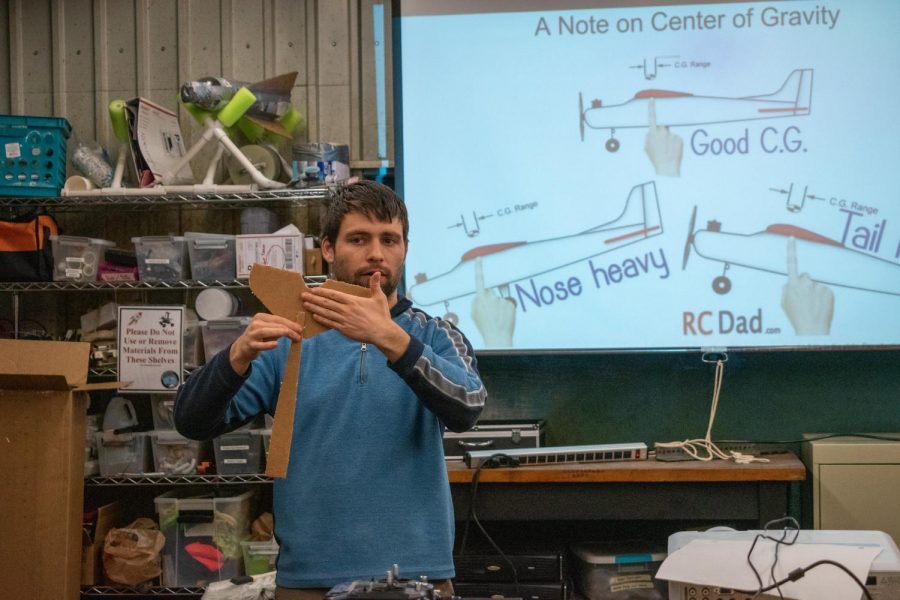UMassAir, an inter-disciplinary team at the University of Massachusetts, hosted an airplane building workshop on Tuesday night where students learned how to design and build miniature airplanes out of foam board.
UMassAir is an interdepartmental and multi-location research and education collaborative at the University centered around unmanned aerial systems education. Ryan Wicks, one of the UMassAir team fellows, lead the workshop with the hope of introducing the basics of flight.
“The workshop tonight in general is meant to be an introduction to aerodynamics,” said Wicks.
After the introduction, Wicks led a hands-on exercise where he instructed the attendees how to build a replica aircraft out of foam board.
“We don’t have the wiring and batteries for it, but ideally, if things go smoothly, a participant will walk away with the body mostly constructed, and then could go get whatever electronics they want to put into it,” he explained.
Staff greeted participants at the UMass All-Campus Maker Space and showed a brief slideshow on the fundamentals of aerodynamics regarding fixed-wing planes. After the slideshow, participants were provided with foam board and paper cut-outs, and used X-ACTO blades and box cutter knives to cut out the plane pieces.
Juneid Mosaheb, a sophomore neuroscience major, was excited to attend the workshop.
“I always like learning new things whenever I can,” said Mosaheb. “I used to be a physics major when I was in Australia, and I really liked aerodynamics. I didn’t continue pursuing it, but I never lost the passion for it.”
UMassAir originally received funding at the end of 2017 through the Science and Technology Development Grant that UMass provides to support start-ups. Since then, 10 faculty fellows have worked closely together to use drones for their research “from geosciences to environmental conservation to civil and environmental engineering and traffic engineering, even archaeology,” said Wicks.
The UMassAir Team hopes that the University will support the program through supplemental funding outside of grants and develop classes offered both on campus and online.
Shira Epstein, the director of Campus Maker Spaces, hopes to use the UMass All-Campus MakerSpace for more workshops such as the Airplane Building Workshop, and encourages students of all majors and concentrations to make use of the multi-purpose space.
“Between the knowledge sharing and the access to equipment sharing and materials sharing, it’s a really good thing on multiple fronts, not only for education, for promoting interdisciplinary work and research,” said Epstein.
Epstein also stressed the environmental benefits of the space.
“It’s also great for sustainability. We often have a bunch of space that’s taken up by too much junk we can’t use. If we just share it, we can find the right member of the community who needs it and makes sure that it gets used before it goes to waste,” she said.
McKenna Premus is a Collegian columnist and can be reached at [email protected] and followed on Twitter @mckenna_premus.




















